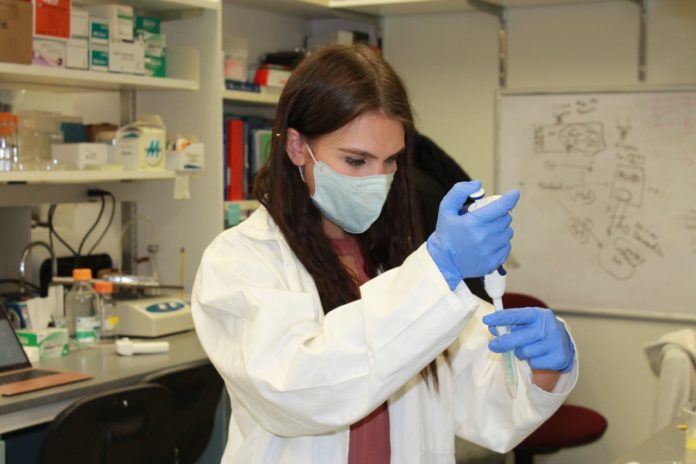
More than a dozen Mercer University undergraduate students are participating in research at institutions across the country this summer.
They’re diving deep into topics such as thermal management, tissue engineering, robotics and more.
“It’s been really fun. I’ve made a lot of friends here,” said Alexa Richardson, a rising senior majoring in chemistry. “I’ve really enjoyed learning a lot and applying the information.”
Richardson is participating in the Summer Undergraduate Pharmacology Experience in Research at LSU Health in Shreveport, Louisiana. She’s researching different amino acids and their role in creating hydrogen sulfides.
“We found that patients with alcohol use disorder have higher levels of hydrogen sulfide, so we’re trying to kind of figure out why they have higher levels of hydrogen sulfides, and the end goal that they’re going to continue doing from my research is to look at alcohol’s role in Alzheimer’s disorder and different neurological diseases.”
The summer research programs vary slightly, but in general, students are paid to work eight-hour days in the lab of a major university or other research institution for about eight to 10 weeks. Many of the programs, known as Research Experiences for Undergraduates, or REUs, are funded by the National Science Foundation.
In many cases, the Mercer students are part of a larger cohort of students from across the country. They make friends, have mentors and participate in events that discuss graduate school and careers in the industry.
“We get to really know everyone that we’re working with and see the things that we have in common and how we can all work together to have a goal,” said Tori Cordista, a rising senior majoring in mechanical engineering. “We’re going to have a symposium at the end where we get to present to everybody, so I think it will be fun to see all the research that everyone’s been working on the whole time.”
Cordista is participating in a thermal management REU at Washington University in St. Louis. She’s studying the flow and thermal properties of nanofluids through pipes.
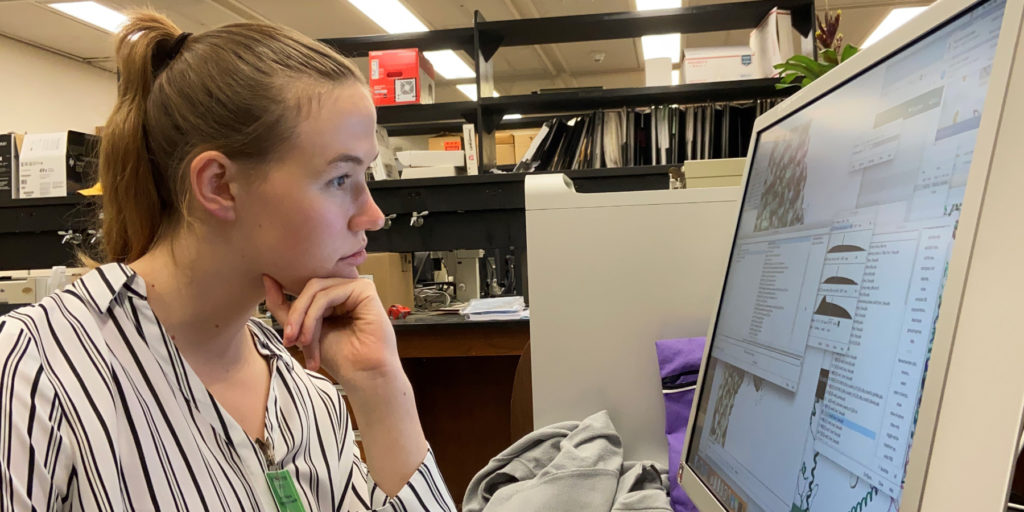
Working 9 a.m.-5 p.m. in the lab can be tiring, but Tessa Gebert, a rising senior double-majoring in biochemistry and political science, said she enjoys seeing how much she can get done in that time. She is able to finish in days projects that would take her a whole semester to complete during an academic year.
“The amount that you can get done is really exciting, and then because of that, you get a lot more exciting findings,” said Gebert, who is working on solving the structure of a mitochondrial ribosome at the New York State Department of Health’s Wadsworth Center in Albany, New York.
Off-campus opportunities like REUs allow students to experience different projects and research, as well as expand their career network, said Dr. Joanna Thomas, assistant professor of biomedical engineering and coordinator of undergraduate research for the School of Engineering.
“It really broadens those horizons,” she said.
In addition, participating in an REU can help students decide if they want to pursue graduate school or enter the workforce after earning their bachelor’s degree, she said.
“Even if they opt not to go to graduate school, the experience that they get, which is hands on in a lab, is beneficial experience for their resumes,” she said.
Cordista said participating in an REU made her even more confident in her career plans.
“Before I came here, I always felt like I wanted to be a professor after school, and now I’m much more sure about that. I really enjoy doing research,” she said. “I’m very heavily considering getting a postdoc after my Ph.D. before I even become a professor now just because of talking to the people here.”
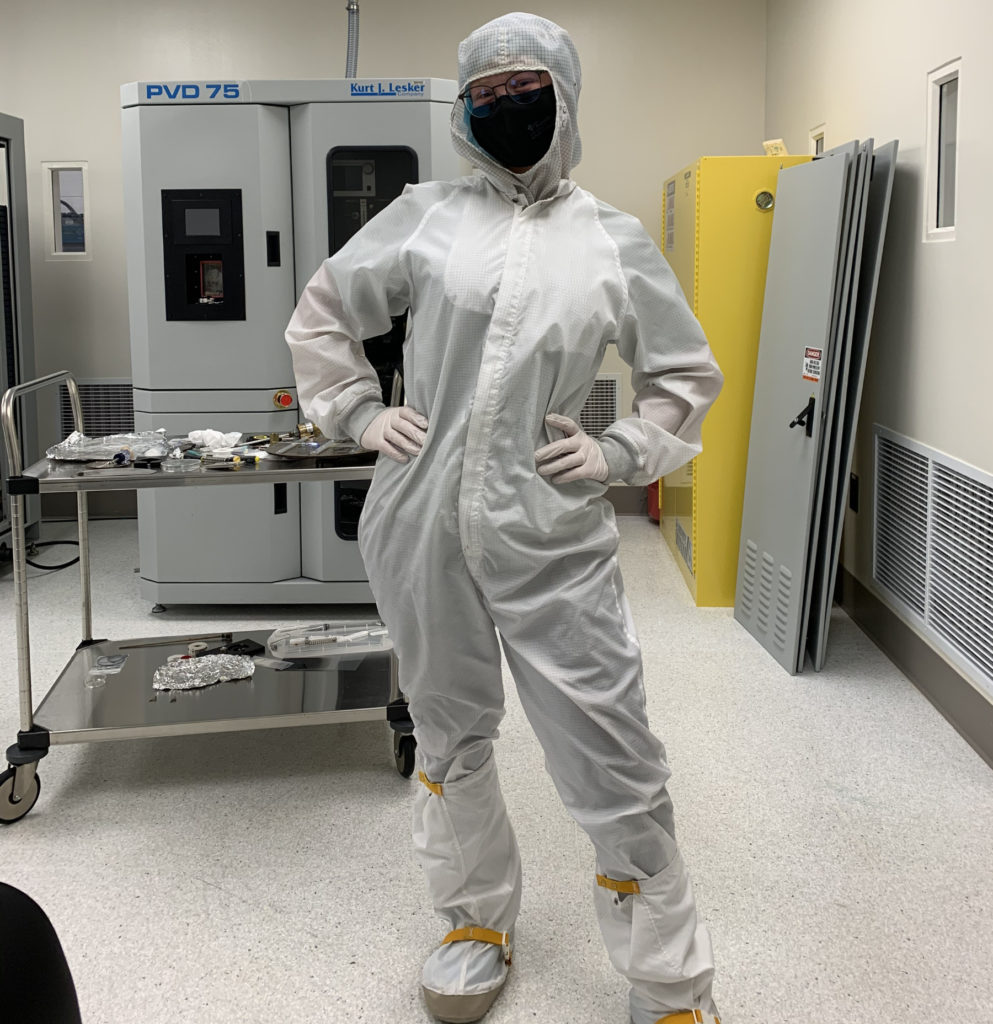
Meanwhile, Sydney Hayes, a rising junior majoring in biomedical engineering, said she’s now looking at going into the industry after she graduates.
“I love research. I think it’s very fun. I think it gives me a good understanding of what’s going on, but at the same time, I kind of realized this summer that research is not something I wanted to do forever,” said Hayes, who is working in the Nanotechnology and Biomedicine program at the University of Georgia. “So I’m starting to lean toward industry and quality and manufacturing of medical devices.”
Chirayu Salgarkar, a rising sophomore majoring in biomedical engineering, is still figuring out what he wants to do after graduation. But in the meantime, he’s enjoying the Summer Undergraduate Research in Engineering Robotics Program at Georgia Tech.
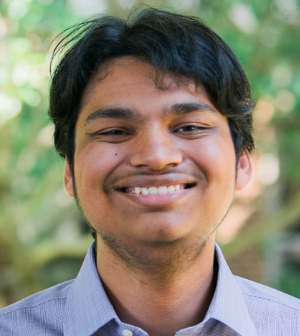
“I’m working on a project under the Cassie robot, a dynamic bipedal robot, and I’m working specifically with two drones that are meant to work in concert with the robot for feedback control, mapping and for any demos of that robot,” he said. “The goal for our project, at least for this summer, is to be able to have two drones that would be working simultaneously with each other that could transfer external data to Cassie.”
The experience has been challenging, too, he said.
“When I came into the program, I had no experience really with drone coding, drone manipulation and things of that sort,” he said. “I’ve learned a lot, especially in regard to control algorithms for drones and control barrier function.”
Sierra Hathaway, a rising senior majoring in biochemistry and molecular biology, said her REU has further prepared her for her senior research project and labs at Mercer.
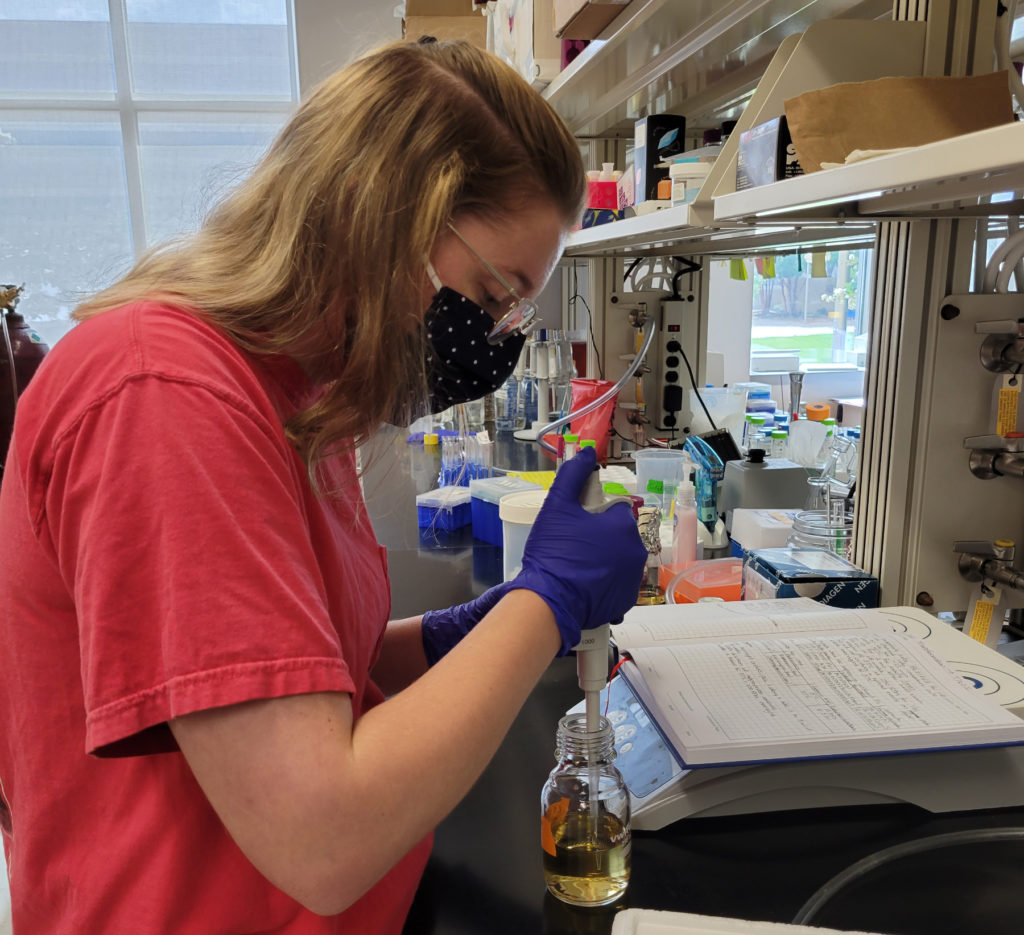
She’s currently working in a lab in the Department of Biochemistry and Biophysics at Texas A&M, where she’s studying structural and dynamic changes in a cancer-associated mutant.
She encouraged students not to let fear keep them from applying to programs like an REU.
“Apply to the schools,” she said. “A lot of people are discouraged and don’t apply to big schools because they’re afraid they won’t get in. But just apply. You never know what will happen.”









